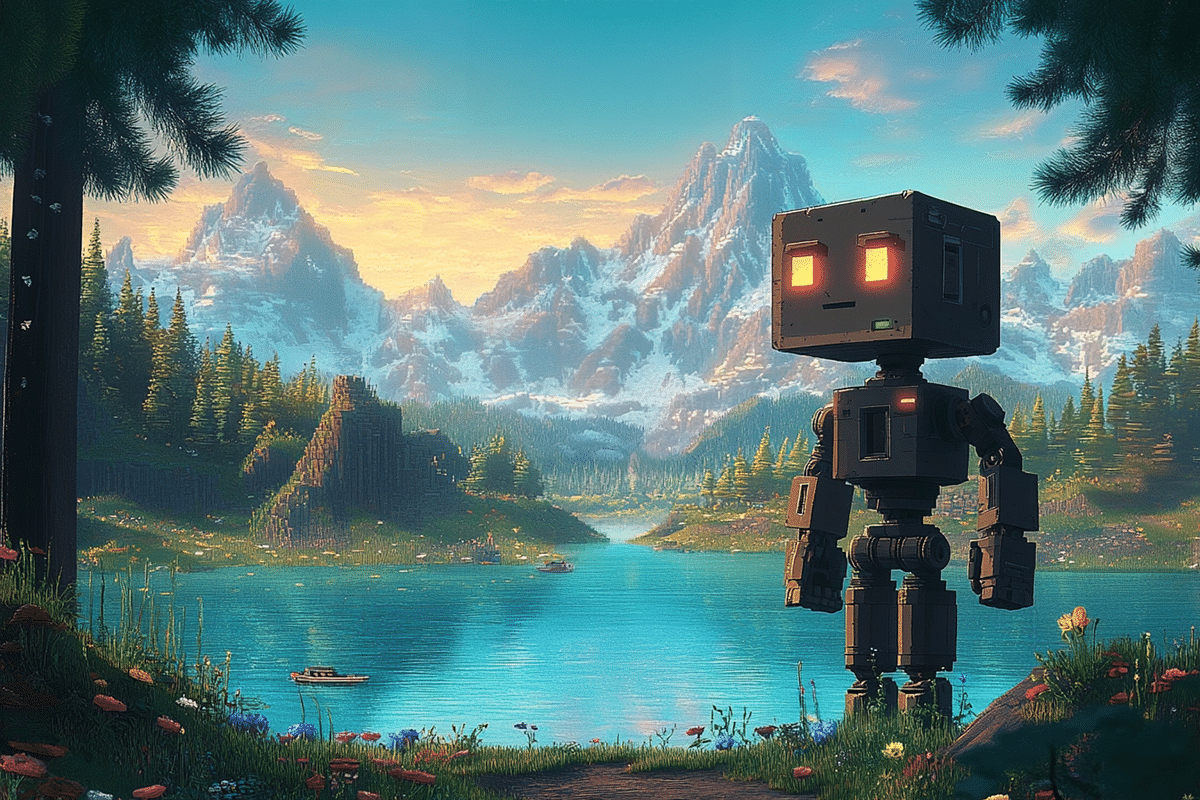A new online game called Oasis is making waves in the gaming community by introducing a groundbreaking concept: a world entirely generated by artificial intelligence. Drawing inspiration from Minecraft, the game offers a similar experience where players can explore a 3D environment, mine resources, and craft items. However, its AI-driven design sets it apart, creating a gameplay experience unlike any other.
Developed by Decart and Etched, Oasis is powered by a model trained on millions of hours of real gameplay. The AI uses advanced diffusion technology to generate each frame in real time, enabling the game to dynamically reshape its environment based on the player’s actions. This continuous transformation of landscapes and objects creates a surreal, almost dreamlike atmosphere where distant scenery morphs as players move closer.
The game allows users to choose from preset starting environments or upload their own images to personalize the world. From the first step, player movements and actions influence the surrounding environment, making every interaction feel unique. Despite these innovations, Oasis is not without its quirks. The dynamic nature of the AI sometimes results in random items appearing in inventories, and the constantly shifting environment challenges the concept of permanence—essential for players seeking to build long-lasting structures.
The game’s mechanics are powered by diffusion models, a cutting-edge approach in AI technology. These models reverse the process of adding Gaussian noise to input data, generating new frames based on temporal layers and previously generated visuals. This technique ensures smooth transitions and a visually coherent experience, albeit one that feels more experimental than practical.
While Oasis showcases the potential for AI to revolutionize game design, it also highlights the current limitations of this technology. The unpredictable landscape changes and inventory anomalies, while intriguing, make it unlikely to replace traditional game engines or human-designed experiences in the near future. The developers see it as a stepping stone toward a future where AI can create highly interactive and personalized gaming worlds.
The vision for AI in gaming extends beyond visual generation. The developers aim to integrate tighter interaction between players and games, with AI responding to textual or audio prompts to create gameplay tailored to user preferences. This could pave the way for games that adapt dynamically to player imagination, offering scenarios as vivid as a pink elephant suddenly appearing to chase them.
For now, Oasis stands as a fascinating experiment. It’s a glimpse into a future where AI might transform how we play games, even if its current iteration feels more like a curiosity than a fully realized product. Players interested in experiencing this novel approach can play Oasis online, though they may need to queue to try it out.




